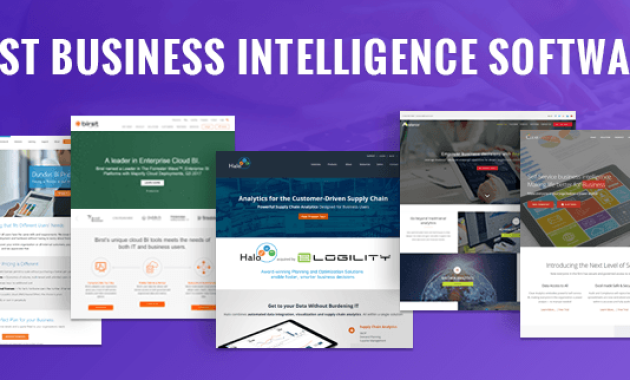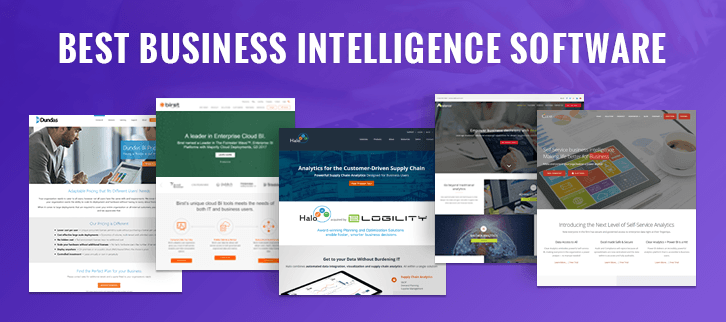
Proven Ways to Learn Business Intelligence Software: A Comprehensive Guide
In today’s data-driven world, the ability to understand and interpret information is paramount. Business Intelligence (BI) software has become an indispensable tool for organizations seeking to gain insights from their data. This article will explore proven ways to learn Business Intelligence software, offering a comprehensive guide for beginners and professionals alike. We will delve into effective learning strategies, essential resources, and practical tips to master this critical skill. Learning **Business Intelligence software** is no longer a luxury; it’s a necessity for informed decision-making.
Understanding the Importance of Business Intelligence Software
Before diving into the ‘how,’ it’s crucial to understand the ‘why.’ **Business Intelligence software** empowers businesses to analyze historical and real-time data. This analysis leads to better strategic decisions. It facilitates identifying trends, predicting future outcomes, and optimizing operational efficiency. The benefits of **Business Intelligence software** extend across various departments. Marketing teams use it for customer segmentation. Sales teams use it for forecasting. Finance teams use it for financial modeling. The ability to extract actionable insights is the core value proposition of these tools.
Choosing the Right Business Intelligence Software
The market offers a plethora of **Business Intelligence software** options. Selecting the right one depends on several factors. These include the size of your organization, your specific needs, and your budget. Some popular choices include:
- Tableau: Known for its user-friendly interface and powerful data visualization capabilities.
- Power BI: Microsoft’s offering, seamlessly integrating with other Microsoft products.
- Looker: A cloud-based platform focused on data modeling and collaboration.
- Qlik Sense: Offers associative data modeling, allowing users to explore relationships in data.
- Sisense: Provides a complete BI platform designed for complex data analysis.
Consider factors like ease of use, data integration capabilities, reporting features, and pricing models. Each platform has its strengths. Researching and comparing different options is essential before making a decision.
Proven Learning Strategies for Business Intelligence Software
Learning **Business Intelligence software** effectively requires a strategic approach. Here are some proven methods to accelerate your learning curve:
Online Courses and Tutorials
Online learning platforms offer a wealth of resources. Platforms like Coursera, Udemy, and LinkedIn Learning provide comprehensive courses on various BI software. These courses often include video tutorials, quizzes, and hands-on projects. They cater to different skill levels. Begin with introductory courses to grasp the fundamentals. Then, progress to advanced courses for specialized skills. This structured approach provides a solid foundation. It covers essential concepts and practical applications.
Official Documentation and Training Materials
Every **Business Intelligence software** vendor provides official documentation. These resources are invaluable for in-depth learning. They offer detailed explanations of features, functions, and best practices. Many vendors also offer official training programs. These programs often include instructor-led sessions and certifications. These programs validate your expertise. They also enhance your marketability in the field. Regularly consult these resources for the latest updates and features.
Hands-on Practice and Projects
Theory is important, but practical application is crucial. The best way to learn **Business Intelligence software** is by doing. Start with small projects. Gradually increase the complexity as your skills improve. Use sample datasets to practice data cleaning, transformation, and visualization. Create dashboards and reports. Experiment with different features and functionalities. Hands-on experience solidifies your understanding. It also builds confidence in your abilities. Consider working on real-world projects. This will offer practical experience.
Community Forums and Online Communities
Join online communities and forums dedicated to **Business Intelligence software**. These communities are excellent resources. They provide support, share knowledge, and offer networking opportunities. Engage in discussions. Ask questions. Share your experiences. Learn from others’ experiences and challenges. Some popular platforms include Reddit, Stack Overflow, and vendor-specific forums. These communities provide a valuable support network. They also offer access to expert advice.
Mentorship and Coaching
Seek guidance from experienced professionals. A mentor can provide personalized advice. They can also offer insights. They can guide you through complex challenges. Mentors can help you navigate the learning process. They can also help you accelerate your career. Look for mentors within your organization. If that’s not possible, consider joining a mentorship program. A mentor can also offer invaluable feedback.
Essential Skills to Develop
Beyond the software itself, certain skills are crucial. These skills complement your **Business Intelligence software** proficiency:
- Data Analysis: Understanding statistical concepts and analytical techniques.
- Data Visualization: Creating effective and informative visualizations.
- Data Modeling: Designing and building data models.
- SQL: Knowing SQL for querying and manipulating data.
- Communication: Effectively communicating insights to stakeholders.
Developing these skills will enhance your ability to use **Business Intelligence software** effectively. It will also improve your overall analytical capabilities. Invest time in learning these skills. They will significantly improve your career prospects.
Tips for Success
Here are some additional tips to ensure your success in learning **Business Intelligence software**:
- Set Realistic Goals: Break down your learning into manageable steps.
- Stay Consistent: Dedicate time to learning regularly.
- Practice Regularly: Apply your knowledge through hands-on projects.
- Seek Feedback: Get feedback on your work.
- Stay Updated: The BI landscape is constantly evolving.
Following these tips will help you stay motivated. It will also ensure steady progress in your learning journey. Continuous learning is key to staying relevant. It is also key to maximizing your skills.
Real-World Applications and Examples
Understanding how **Business Intelligence software** is used in practice can provide valuable context. Consider these examples:
- Retail: Analyzing sales data to identify top-selling products.
- Healthcare: Tracking patient outcomes and optimizing resource allocation.
- Finance: Monitoring financial performance and detecting fraud.
- Marketing: Analyzing marketing campaign effectiveness and customer behavior.
- Manufacturing: Improving production efficiency and supply chain management.
These examples showcase the versatility of **Business Intelligence software**. They also highlight its impact on various industries. Studying real-world case studies can provide inspiration. It can also provide practical insights.
The Future of Business Intelligence Software
The field of **Business Intelligence software** is continuously evolving. Trends like artificial intelligence (AI) and machine learning (ML) are reshaping the landscape. AI-powered BI tools can automate data analysis. They can also provide predictive insights. The integration of these technologies is creating more powerful and intelligent solutions. Staying abreast of these trends is crucial. It allows you to stay competitive. It also helps you leverage new opportunities.
Conclusion
Learning **Business Intelligence software** requires a combination of strategic learning, hands-on practice, and continuous learning. By following the proven ways outlined in this guide, you can build a strong foundation. You can also develop the skills needed to excel in this dynamic field. Embrace the opportunity to learn and grow. The insights gained from **Business Intelligence software** will empower you to make better decisions. This will also lead to greater success. [See also: Related Article Titles]

